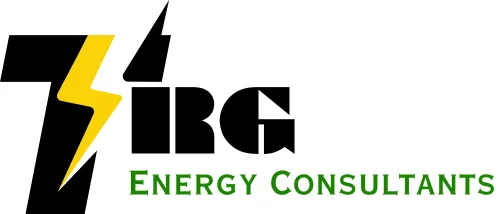Government and Regulatory Agencies
Government and Regulatory Agencies
Government and Regulatory Agencies
Government and regulatory agencies play a crucial role in shaping the energy procurement and utilities landscape. These entities provide extensive resources, reports, studies, and guidelines that offer valuable insights into policy developments, market trends, and industry best practices. Here are some additional details about the significance of government and regulatory agencies in energy procurement and utilities:
Policy Development and Regulation: Government agencies are responsible for developing energy policies and regulations that govern the procurement, distribution, and consumption of energy. These policies aim to ensure reliable energy supply, promote sustainability, and protect consumer interests. Regulatory agencies oversee compliance with these policies and enforce regulations within the energy sector.
Market Monitoring and Analysis: Government and regulatory agencies monitor energy markets to assess market conditions, competition, and pricing. They analyze supply and demand dynamics, infrastructure development, and emerging technologies. This analysis helps identify potential market issues, promote fair competition, and inform policy decisions.
Energy Efficiency Programs: Government agencies often implement energy efficiency programs and initiatives to promote sustainable energy use and reduce energy consumption. These programs provide incentives, grants, and technical assistance to organizations and individuals, encouraging them to adopt energy-efficient practices and technologies.
Renewable Energy Support: Many governments have renewable energy targets and support mechanisms to drive the adoption of clean energy sources. Government agencies provide incentives, subsidies, and feed-in tariffs to promote renewable energy generation and procurement. They also facilitate the integration of renewable energy into the grid and manage related policies and regulations.
Research and Development: Government agencies invest in research and development (R&D) initiatives to advance energy technologies, improve efficiency, and support innovation in the energy sector. They often collaborate with industry stakeholders, universities, and research institutions to fund research projects, develop standards, and promote technology transfer.
Data Collection and Reporting: Government agencies collect and maintain comprehensive data on energy consumption, production, and prices. This data is used to assess energy trends, track progress towards energy goals, and provide insights into the energy sector's performance. Agencies often publish reports, statistical analyses, and databases that offer valuable information to energy market participants.
Stakeholder Engagement: Government and regulatory agencies engage with stakeholders, including industry representatives, consumer groups, environmental organizations, and the public, to gather input and ensure transparency in energy policy and decision-making processes. They often hold public consultations, hearings, and forums to solicit feedback and incorporate diverse perspectives.
The resources and insights provided by government and regulatory agencies enable market participants, businesses, and consumers to make informed decisions regarding energy procurement, sustainability practices, and compliance with regulations. Accessing the publications and resources offered by these agencies can help stakeholders navigate the complexities of energy procurement and utilities while staying abreast of the latest policy developments and industry trends.
Government and Regulatory Agencies
Government and regulatory agencies play a crucial role in shaping the energy procurement and utilities landscape. These entities provide extensive resources, reports, studies, and guidelines that offer valuable insights into policy developments, market trends, and industry best practices. Here are some additional details about the significance of government and regulatory agencies in energy procurement and utilities:
Policy Development and Regulation: Government agencies are responsible for developing energy policies and regulations that govern the procurement, distribution, and consumption of energy. These policies aim to ensure reliable energy supply, promote sustainability, and protect consumer interests. Regulatory agencies oversee compliance with these policies and enforce regulations within the energy sector.
Market Monitoring and Analysis: Government and regulatory agencies monitor energy markets to assess market conditions, competition, and pricing. They analyze supply and demand dynamics, infrastructure development, and emerging technologies. This analysis helps identify potential market issues, promote fair competition, and inform policy decisions.
Energy Efficiency Programs: Government agencies often implement energy efficiency programs and initiatives to promote sustainable energy use and reduce energy consumption. These programs provide incentives, grants, and technical assistance to organizations and individuals, encouraging them to adopt energy-efficient practices and technologies.
Renewable Energy Support: Many governments have renewable energy targets and support mechanisms to drive the adoption of clean energy sources. Government agencies provide incentives, subsidies, and feed-in tariffs to promote renewable energy generation and procurement. They also facilitate the integration of renewable energy into the grid and manage related policies and regulations.
Research and Development: Government agencies invest in research and development (R&D) initiatives to advance energy technologies, improve efficiency, and support innovation in the energy sector. They often collaborate with industry stakeholders, universities, and research institutions to fund research projects, develop standards, and promote technology transfer.
Data Collection and Reporting: Government agencies collect and maintain comprehensive data on energy consumption, production, and prices. This data is used to assess energy trends, track progress towards energy goals, and provide insights into the energy sector's performance. Agencies often publish reports, statistical analyses, and databases that offer valuable information to energy market participants.
Stakeholder Engagement: Government and regulatory agencies engage with stakeholders, including industry representatives, consumer groups, environmental organizations, and the public, to gather input and ensure transparency in energy policy and decision-making processes. They often hold public consultations, hearings, and forums to solicit feedback and incorporate diverse perspectives.
The resources and insights provided by government and regulatory agencies enable market participants, businesses, and consumers to make informed decisions regarding energy procurement, sustainability practices, and compliance with regulations. Accessing the publications and resources offered by these agencies can help stakeholders navigate the complexities of energy procurement and utilities while staying abreast of the latest policy developments and industry trends.

